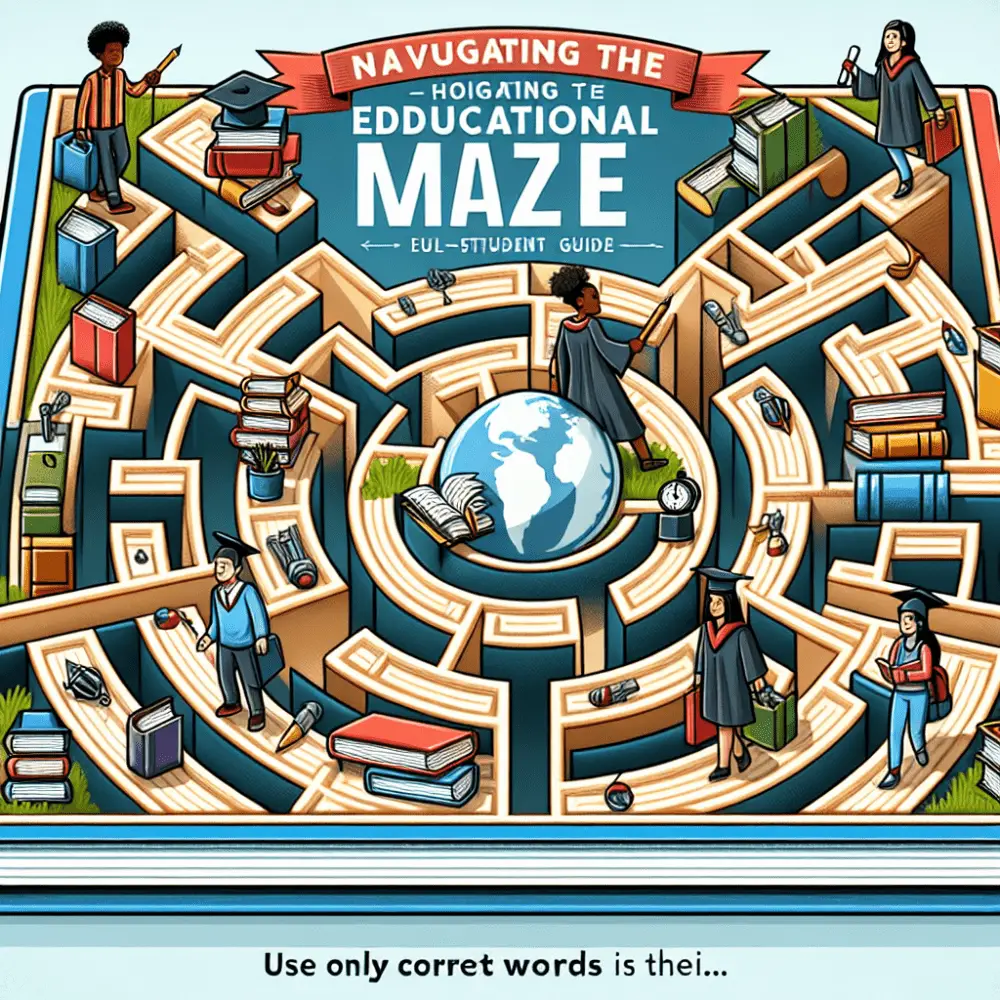
Introduction:
Navigating the educational maze can be a daunting task for students. With so many options, requirements, and decisions to make, it’s easy to feel overwhelmed. However, with the right guidance and resources, students can successfully navigate their way through the educational system and make informed choices that will set them up for success.
In this comprehensive student guide, we will break down the various aspects of education, from choosing the right school and major to managing time effectively and maximizing learning opportunities. Whether you’re a high school student preparing for college or a college student looking to make the most of your academic journey, this guide will provide you with the information and strategies you need to thrive in your educational pursuits.
Choosing a School:
When it comes to choosing a school, there are several factors to consider. Location, cost of tuition, academic reputation, and available programs of study are just a few examples. It’s important to research different schools thoroughly and visit campuses if possible. Talking to current students and professors can also provide valuable insights into what life at a particular institution is really like.
Planning Your Academic Path:
Once you’ve chosen a school, it’s time to plan your academic path. This involves selecting a major or field of study that aligns with your interests and career goals. Consider your strengths, passions, and future aspirations when making this decision. Additionally, familiarize yourself with the specific requirements for your chosen major so you can plan your course schedule accordingly.
Time Management:
Effective time management is crucial for academic success. Balancing classes, studying, extracurricular activities, work commitments (if applicable), and personal life can be challenging. Creating a schedule or using a planner can help you stay organized and ensure that all tasks are completed on time. Prioritize tasks based on importance and deadlines while also allowing time for relaxation and self-care.
Building Relationships:
Building relationships with professors and peers is an essential aspect of the educational experience. Professors can offer guidance, mentorship, and letters of recommendation, while peers can provide support and collaboration opportunities. Attend office hours, participate actively in class discussions, and join student organizations to expand your network and make the most of your educational journey.
Making the Most of Resources:
Educational institutions offer a wide range of resources that students can utilize to enhance their learning experience. These resources may include libraries, research facilities, tutoring services, career centers, and counseling services. Take advantage of these resources to gain a deeper understanding of your coursework, explore career opportunities, improve study skills, and seek emotional support when needed.
Maximizing Learning Opportunities:
Learning doesn’t just happen in the classroom. Take advantage of internships, co-op programs, study abroad opportunities, and volunteer work to gain practical experience and broaden your horizons. These experiences can not only enhance your resume but also provide valuable insights into different industries and cultures.
Conclusion:
Navigating the educational maze may seem challenging at first glance, but with the right guidance and strategies in place, students can successfully navigate their way through their academic journey. By choosing the right school, planning your academic path effectively, managing time wisely, building relationships with professors and peers, utilizing available resources smartly, and maximizing learning opportunities both inside and outside the classroom – students can pave the way for a fulfilling educational experience that sets them up for future success.
FAQs:
Q: How do I choose the right school?
A: Consider factors such as location, cost of tuition, academic reputation, available programs of study.
Q: How should I plan my academic path?
A: Start by selecting a major or field of study that aligns with your interests and career goals. Familiarize yourself with specific major requirements.
Q: How do I manage my time effectively?
A: Create a schedule or use a planner to stay organized. Prioritize tasks based on importance and deadlines.
Q: How can I build relationships with professors and peers?
A: Attend office hours, participate actively in class discussions, and join student organizations.
Q: What resources can I utilize?
A: Libraries, research facilities, tutoring services, career centers, and counseling services are some examples of resources available to students.
Q: How can I maximize learning opportunities?
A: Take advantage of internships, co-op programs, study abroad opportunities, and volunteer work to gain practical experience.












